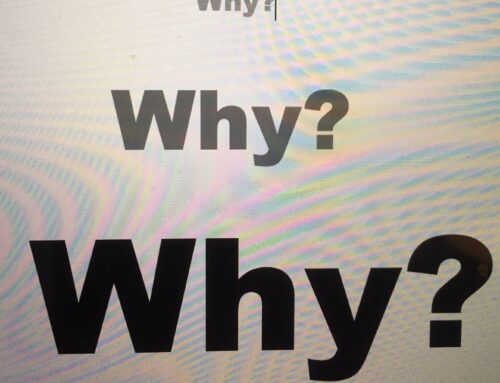
Example 1: America Magazine published an essay by Georgetown University theology instructor Katheen Bonnette that praised Episcopal Bishop Marianne Budde for insulting and embarrassing President Trump at length in her Church on the day of his inauguration. Bonnette praised Budde’s “prophetic leadership,” adding that “we must use whatever privilege and authority we have to stand together against the new administration’s widespread assaults on human dignity, offering encouragement and protection to all who are vulnerable.” [Emphasis added]
Comment: Here an instructor, in theology no less, praises a Christian bishop for insulting from the pulpit someone who under the circumstances could neither walk away nor defend himself, an action that was both ill-timed and cruel and therefore morally offensive. As if that mistaken evaluation were not bad enough, the instructor labels legal actions against criminal behavior (illegal entry) as assaults on human dignity. If such thinking were followed in our courts, every perpetrator of a crime—from a shoplifter to a rapist and murderer—would be found not guilty and the arresting officer would be charged with violating human dignity.
Example 2: The same Jesuit magazine simultaneously published an essay by Connor Hartigan, a former editorial intern of the publication, who said Budde was “performing one of the most essential tasks of Christian ministry.” After admitting that her comments about (and to) Trump were not “common” for American clergy, he proceeded to cite comments from a Catholic priest, three popes, and an archbishop, each of whom boldly condemned tyrants like Hitler and Fidel Castro. He did not say that Trump deserved to be considered equally tyrannical. But at that point there was no need to—the implication was clear.
Comment: This author goes well beyond the theology instructor’s flaws in reasoning. He would have us believe that a bishop attacking, from her church pulpit, a person who at the time was a defenseless, invited visitor, was performing “one of the most essential tasks of Christian ministry.” Heaven help us.
Example 3: At roughly the same time as examples 1 and 2, the U.S. Council of Catholic Bishops (USCCB) issued a statement on the same issue, the deportation of illegal aliens. The statement was titled, “Human Dignity is Not Dependent on a Person’s Citizenship or Immigration Status.” It went on to say that “Through [Catholic] ministries . . .we uphold the belief that all people are conceived with inherent dignity, reflecting the image of God. Through our parishes, shelters, hospitals, schools, and other Church institutions, we recognize that this dignity is not dependent on a person’s citizenship or immigration status.” [Emphasis added]
While acknowledging the government’s obligation to enforce immigration laws, the Bishops claim that “non-emergency immigration enforcement in schools, places of worship, social service agencies, healthcare facilities, or other sensitive settings where people receive essential services would be contrary to the common good.” They state that illegals are already showing reticence and fear by keeping their children from school. And they argue that “all people have a right to fulfill their duty to God without fear”; they therefore oppose “turning places of care, healing, and solace into places of fear and uncertainty for those in need [and] endangering the trust between pastors, providers, educators and the people they serve.” [Emphasis added]
Comment: The Bishops’ statement is no less flawed than that of America Magazine’s contributors. Though its title seems profound, it is in fact a non-sequitur: of course, human dignity exists no matter what a person does, but it is not a free pass to violate reasonable and just laws. Also, the Bishops first acknowledge the government’s obligation to enforce immigration laws, but in the next breath present a long list of places where the government should not go to meet that obligation. As if that doesn’t weaken the government’s obligation enough, they offer migrants’ “duty to God” to complete the job. It all sounds logically and spiritually moving. But if we ponder it, we realize that they are coming dangerously close to saying illegal migrants can do no wrong.
At this point, readers may be wondering why most of Catholic hierarchy and many Catholic intellectuals passionately embrace the cause of people from around the world who enter the United States (and other countries) in violation of the law and, furthermore, refuse to acknowledge the harm this illegal entry has caused.
The Catholic hierarchy and lay intellectuals I am referring to would no doubt say they are following Sacred Scripture and point to “Love your neighbor as yourself,” found in Mark 12:31 and elsewhere. (Similar ones are found in 1 Peter 3:8, Galatians 5:14, Matt: 7:12, and Romans 15.2.) Two that are somewhat different from others, though in the same vein, are Galatians 6:2, “Carry each other’s burdens, and in this way you will fulfill the law of Christ”; and Hebrews 13:1-2,”Keep on loving one another as brothers and sisters. Do not forget to show hospitality to strangers, for by so doing some people have shown hospitality to angels without knowing it.”
Such commands to love our neighbor might seem to support open borders. But that conclusion shouldn’t be drawn until other possibilities are ruled out. The way to do that is consider other comparable situations, for example that of a family rather than a nation:
Let’s say a group of people enter our house without invitation. In that case does God demand that we welcome them as neighbors and extend every courtesy to them for as long as they wish to stay, no matter the level of our income, the number of family members, and the size of our house? If we tell them they must leave, are we rejecting God’s commandment to love our neighbor?
Common sense says the answer to both questions is definitely no! So where do “progressives” get the idea that God commands that entire countries open their borders? A delightful old Jewish saying provides the answer: “Send a fool to close the shutters and he’ll close them all over town.” This is a clever way of saying that people often take a wonderful idea, or in this case God’s command, and apply it far beyond its intended application. They fall victim to this error by not using the minds God gave us and discerning whether the command really applies in the case at hand. Jesus, in fact, provided guidance to discernment—”By their fruits shall you know them.”
With Jesus’ words in mind, the Bishops could have examined the effects open borders have had on the U.S. To be sure, they would have found some people escaping imminent danger in their home countries and living better lives. But they would also have found cartels that took advantage of poor people, separated young children from their parents and turned them into sex slaves, brought fentanyl into this country and killed more than a million Americans. Nor were these dire effects the only ones. Open borders resulted in an influx of thieves, child abusers, rapists, who wreaked havoc on Americans, including great numbers of immigrants who came here legally.
What is ironic about the Bishops’ support of illegal immigration is that it contradicts both common sense and their sworn obligation to God and the Catholic Church.
Each bishop governs a diocese—that is a group of churches within a geographic area. The parishioners in that area are his “sheep.” When he is ordained, he is told to ”Take this staff as a sign of your pastoral office: keep watch over the whole flock in which the Holy Spirit has appointed you to shepherd the Church of God. This command is based on many biblical references to shepherds and their flocks, notably Acts 20:28 “Pay careful attention to yourselves and to all the flock, in which the Holy Spirit has made you overseers, to care for the church of God, which he obtained with his own blood.” [Emphasis added]
The biblical shepherd’s job was to protect his sheep from dangers like wolves. If he saw a wolf approaching, a responsible shepherd would therefore think “I know this wolf is one of God’s creatures, but wolves kill the sheep God wants me to protect, so I cannot allow the creature here.” Such thinking did not require advanced education, only common sense.)
In the Bishops’ real-life shepherding, the “wolves” that endanger the “sheep” are both more dangerous and more effectively hidden. The task of saving the “sheep” is therefore more difficult and requires ingenuity. That said, the worst possible line of thought is, “‘Wolves’ are God’s creatures and have the same inherent dignity as ‘sheep’ They should therefore be treated the same as ‘sheep’ and protected from border officials and police.”
Sadly, that absurd line of thought seems to be the one Catholic Bishops embrace, to the rousing approval of “progressives” of every sort, but to the dismay of all who value common sense and the confusion of those who look to the Bishops for guidance from God.
Copyright © 2025 by Vincent Ryan Ruggiero. All rights reserved.



